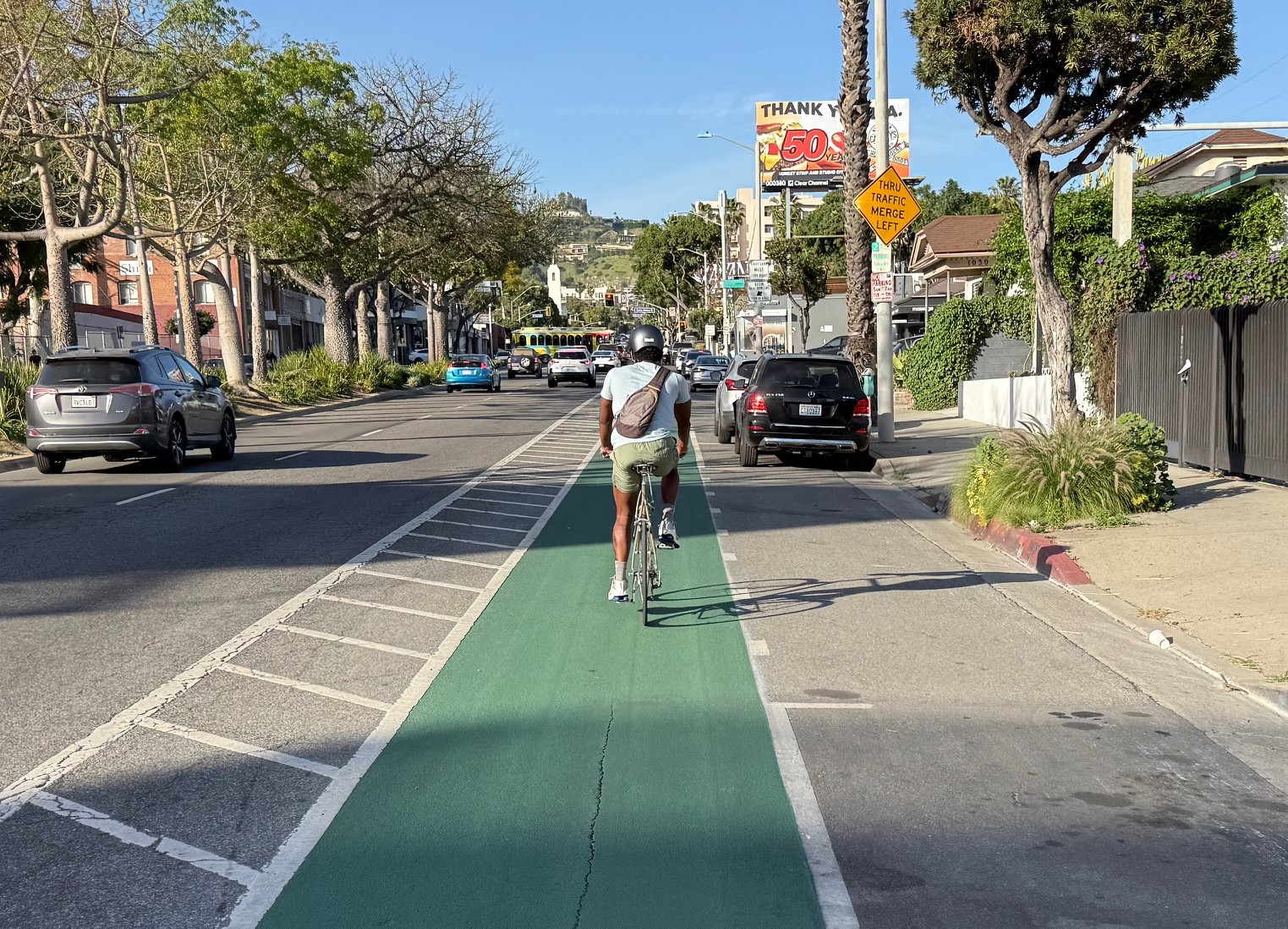Funds for walking and biking infrastructure account for a tiny portion of federal transportation spending. Safer streets don't cost much, though, so for the cities and towns that count on these programs, a few dollars from the feds can be a huge help. Despite the relatively small sums at play, walking and biking programs are a constant target for a certain breed of hardline conservative in Congress. This year is no different.
Three proposed amendments to the House transportation bill take aim at programs that fund walking and biking infrastructure.

Tomorrow these amendments will be considered in the Rules Committee, which will decide which get a vote by the full House of Representatives during a markup session Wednesday and Thursday, says Caron Whitaker, vice president of government relations for the League of American Bicyclists. People for Bikes, the League of American Bicyclists, and the Rails to Trails Conservancy are all urging supporters to contact their representatives and tell them to oppose these amendments.
Here's a summary of what's proposed:
Amendment 68 -- Buddy Carter (R-Georgia)
What's at stake: The flexibility to spend any funds from the Surface Transportation Program on walking or biking infrastructure.
What it would do: Amendment 68 would forbid funds from the $10 billion Surface Transportation Program from being spent on walking and biking projects. This program accounts for about one fifth of annual federal transportation spending, with a small fraction of that going toward biking and walking projects. In 2014, about $128 million from this program was allocated to walking and biking projects, according to FHWA.
Why it's a bad idea: States and localities have been choosing to invest more STP money in biking and walking -- especially since MAP 21, the current transportation law, reduced the dedicated pool of funding for those activities. That $128 million spent in 2014 represented an 83 percent increase over STP funding for biking and walking in 2009.
Amendment 69 -- Buddy Carter (R-Georgia)
What's at stake? $820 million annually.
What it would do: The "Transportation Alternatives Program" is the only source of dedicated federal funds for walking and biking projects. In 2014 it disbursed about $820 million, and local agencies had to spend at least 50 percent of their share on active transportation. Amendment 69 would do away with the 50 percent requirement. There would, in effect, be no federal funds dedicated to walking and biking.
Why it's bad: The annual $820 million for walking and biking accounts for less than 2 percent of federal transportation spending, despite pedestrians and bicyclists accounting for a higher proportion of total trips and traffic fatalities. To put the funding in perspective, the entire federal program for walking and biking is less than half what the state of Wisconsin is spending to rebuild and expand the "Zoo Interchange" outside Milwaukee. Representatives like Rock Larsen (D-Washington) fought hard to preserve the "Transportation Alternatives Program" from further cuts in the House Transportation and Infrastructure Committee.
Amendment 158 -- Ted Yoho (R-Florida)
What's at Stake? $85 million annually.
What it would do: Amendment 158 would zero out the federal funding that goes to trails each year as part of the Transportation Alternatives program -- about $85 million per year, according to Patrick Wojahn of the Rails to Trails Conservancy.
Why it's a bad idea: MAP-21 allowed states to "opt out" of this program. It's a testament to its overwhelming popularity that only one state chose to do so last year, according to Wojahn: Connecticut.






